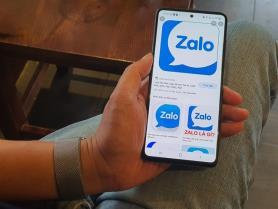Meta has introduced new updates to its Brand Rights Protection tools, aiming to help businesses better protect their brands and customers from scams and misuse on Facebook and Instagram.

HÀ NỘI — Meta has introduced new updates to its Brand Rights Protection tools, aiming to help businesses better protect their brands and customers from scams and misuse on Facebook and Instagram.
The updates, announced this week, expand scam ad reporting and simplify the takedown request process, making it easier for companies to safeguard their intellectual property and brand integrity.
Under the expanded reporting feature, all businesses enrolled in Brand Rights Protection can now flag suspected scam ads at scale, even if the content does not directly use their intellectual property. This includes misleading ads or unauthorised use of a brand’s name. Reports can be submitted under the 'Other' violation type in the ads tab of the tool.
Meta has also streamlined the takedown process to reduce administrative work. The redesigned interface now features sub-tabs for different violation types – copyright, counterfeit, impersonation and trademark – under the Drafts section. Businesses can also search or filter reports by email report IDs, keywords, trademark names and report owner names.
The company said these changes will save time for businesses while improving the user experience.
In 2024, Meta removed more than 157 million pieces of advertising content globally for violating its policies on fraud, scams and deceptive business practices. The company works with experts, law enforcement and industry partners to help hold offenders accountable.
Meta also runs initiatives to raise public awareness of scams, including the 'Is This Legit?' campaign launched during Vietnam Cybersecurity Day. The interactive game places users in real-life scenarios to help them practise spotting and avoiding online scams.
The move comes as online scams – including business impersonation – are becoming increasingly common in the digital space, with more sophisticated methods being used to deceive victims.
According to the National Cybersecurity Association, online scams caused losses of VNĐ18.9 trillion (US$720 million) in Việt Nam in 2024. This alarming figure means that one in every 220 smartphone users in the country has fallen victim to such crimes.
The Prime Minister has ordered stronger action against high-tech crimes, tasking the Ministry of Finance with tightening business registration, verifying company representatives with the Ministry of Public Security, removing fake business data, preventing shell companies and linking tax records with the national population database to boost verification and crime prevention. — BIZHUB




